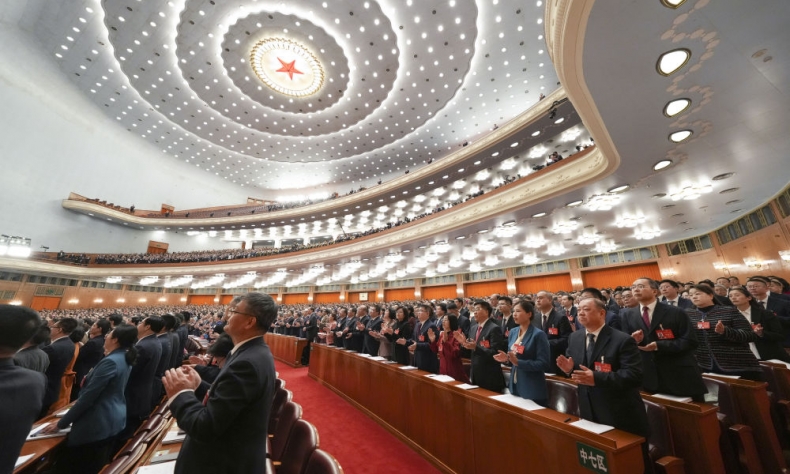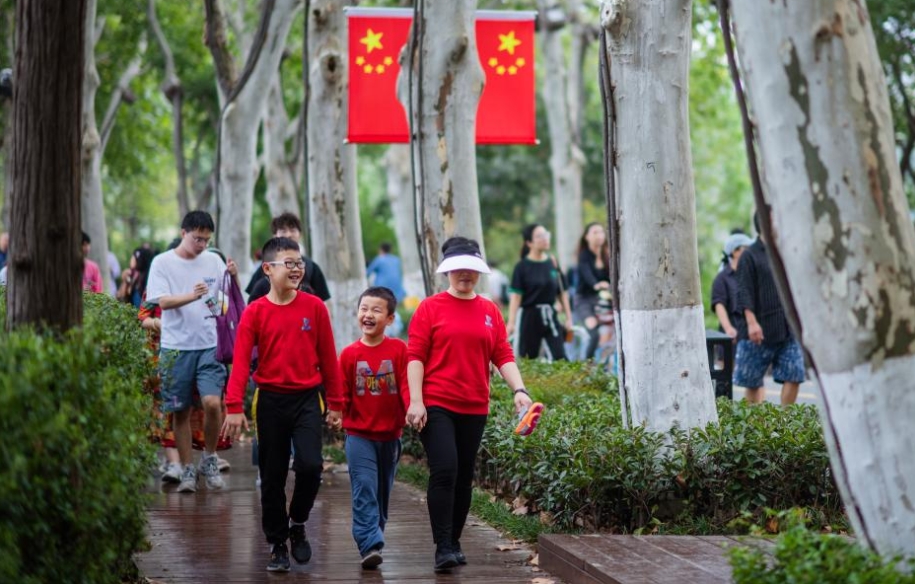Josef Gregory Mahoney: Whole-Process People’s Democracy and China in the New Era

China has now emerged as a strong and wealthy nation, capable of serving the greater global good through win-win development schemes, while promoting democracy internationally through true multilateralism.
Editor’s Note: The annual sessions of China’s national legislature and political advisory body, or the two sessions, are one of the most significant events in the Chinese political calendar, providing a window to observe the ideas and practices of whole-process people’s democracy. Josef Gregory Mahoney, Professor of Politics and International Relations at East China Normal University, gives his understanding of whole-process people’s democracy and China in the new era.
China Focus: How do you understand China’s efforts to actively develop whole-process people’s democracy?
Josef Gregory Mahoney: Whole-process people’s democracy is described as a people-oriented and results-oriented approach, ensuring national rejuvenation and common prosperity. It combines both direct and indirect elections with complementary forms of systemic discipline, to ensure cleaner and more effective governance.
In fact, it combines a wide range of instrumental practices, like the rule of law, political consultations, increasingly open, digital governance and an increasingly robust system for public commentary and feedback. Altogether, these efforts and others are combined to achieve the intrinsic values of democracy, including bringing development and opportunities for growth to the masses while strengthening access to quality healthcare, education and security.
Whole-process democracy is another term for all the various mechanisms in place that make good governance possible. Nationally, the sort of governance that ensures sovereignty and security, that puts people first, that advances the rule of law, that raises people out of poverty, and so on. This is whole-process democracy.
In the West, in the U.S. especially, this idea of democracy and the rule of law firstly always privileges private property rights. It doesn’t seem to matter that bourgeois liberal democracy is now polarized and ineffectual, that it seems locked in a cycle of conflict and declines.
Now, despite these outcomes, Western democracy is mistaken as an intrinsic manifestation of social justice. In China, it’s the opposite. Whole-process democracy has helped usher the Chinese people into a new era, one that has encountered “changes unseen in a century,” as China has now emerged as a strong and wealthy nation, (not only) capable of safeguarding its sovereignty from those who seek to imperil it, but also capable of serving the greater global good through win-win development schemes, especially in the long-neglected areas of the Global South, while promoting democracy internationally through true multilateralism.

China Focus: How do you understand these concepts of “major changes unseen in a century” and “new era” put forward by China?
Josef Gregory Mahoney: Contemporary Chinese political discourse frequently mentions “changes unseen in a century”. Firstly, for some the phrase represents a historical turning point, one in which the historical experience known as China’s “century of humiliation” from 1840 to 1949 when China was vulnerable to, dominated by and even existentially threatened by foreign powers, has now been inverted with China’s re-emergence as a secure sovereign nation and a growing global power. China now has the world’s second largest economy. These changes alone are monumental.
Secondly, the phrase is also associated with the Communist Party of China’s founding centennial in 2021 and achieving the first centennial national development goal of establishing a xiaokang society — a moderately prosperous society — as a threshold event signaling China raising hundreds of millions out of poverty in the past decade, eliminating extreme poverty altogether, and creating a population of more than 400 million middle-income earners who, along with the rest of China’s population, which accounts for nearly 20 percent of the world’s total, enjoy unprecedented levels of sovereignty and security, and growing opportunities for realizing common prosperity via the rubric of socialism with Chinese characteristics.
Thirdly, the phrase also links to growing and often intersecting challenges that pose both new dangers and opportunities for China in the world. These include problems associated with climate change and certainly more to come, including growing international tensions and conflicts amid geostrategic and economic realignment.
This phrase coincides with another term: “new era”, with both expressions reflecting a historicist worldview. This kind of worldview is common to Marxists, and especially Chinese Marxists. In other words, we must understand ourselves as moving through time, encountering contradictions and changes, and the possibility of progress as well as decline.
China Focus: What role can China play in working with the international community to address future global challenges?
Josef Gregory Mahoney: We’ve already entered a new era of China’s diplomacy as a major country. We are already seeing a new multilateralism. We’re already seeing new global resistance to the U.S. anti-China containment policies, even from some U.S. allies. At the same time, we’re seeing China renewing old friendships and making new ones. We’re seeing China taking the lead on fighting climate change, making up for shortfalls facing 2030 development goals with the Global Development Initiative, pushing for global security, trade and development with multilateral efforts associated with the Global Security Initiative, the Belt and Road Initiative, the Shanghai Cooperation Organization and others.
 Facebook
Facebook
 Twitter
Twitter
 Linkedin
Linkedin
 Google +
Google +











